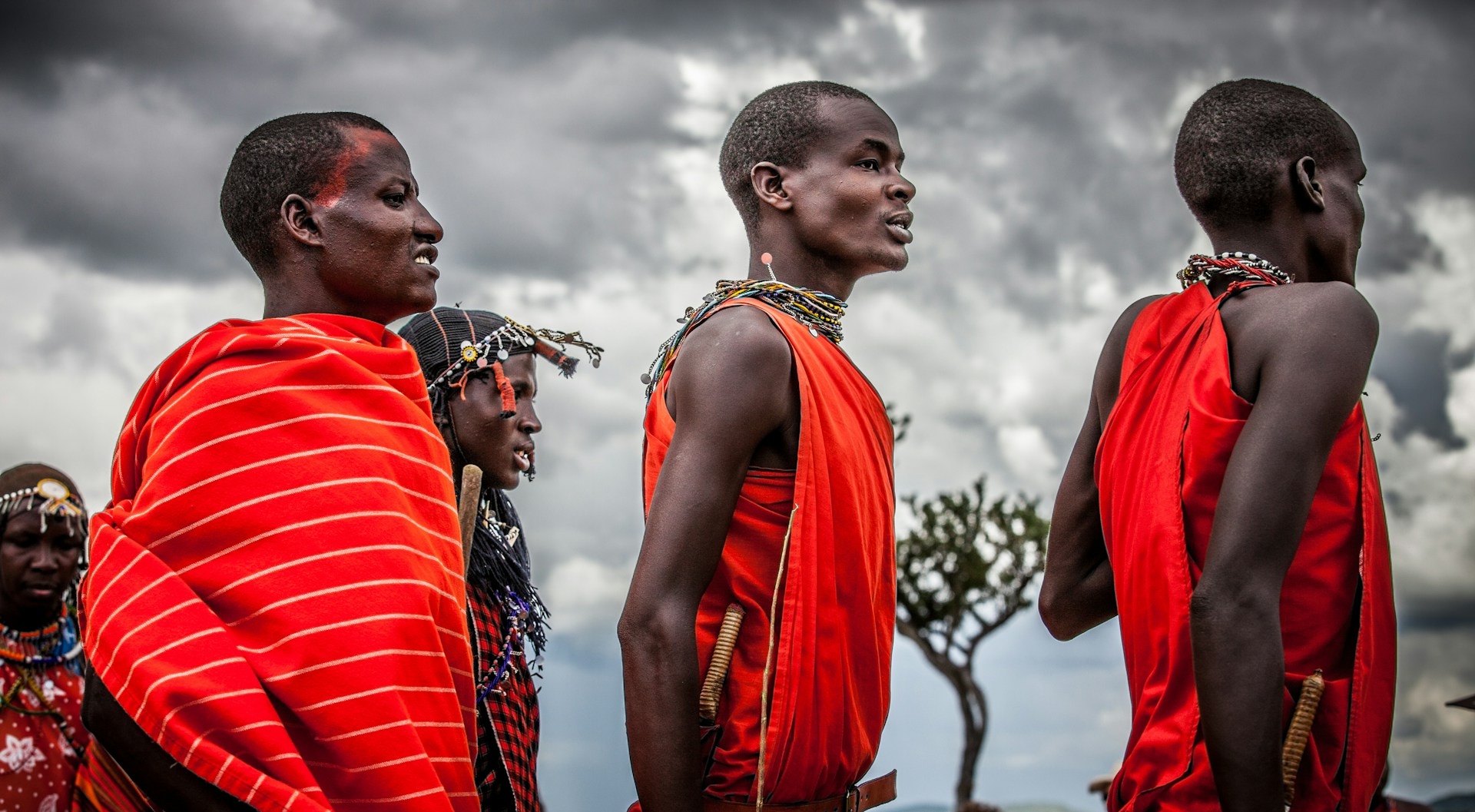Postcolonialism and Subalternity in Chimamanda Adichie’s Half of a Yellow Sun through the lens of Frantz Fanon’s chapter “The Negro and Language” from Black Skin, White Masks
Set in the 1970s, Half of a Yellow Sun by Chimamanda Ngozi Adichie (2006) is a great example of postcolonial writing, especially as it relates to the different classes of characters created in the aftermath of colonized rule and their unique relationships with each other as depicted in the novel. For example, Ugwu’s master, Odenigbo, belongs to an elite societal class of well-to-do, western-educated ‘university men and women’, while Ugwu, on the other hand, much like his aunty and the other house boys/girls in the story, are barely literate low-class citizens who are mostly found in menial cleaning and help jobs (Adichie 2006). This gulf in class buttresses a point Frantz Fanon (1986) made in his chapter “The Negro and Language” in Black Skin, White Masks when he implied that western-educated blacks are oftentimes proportionately whiter in their ways than the whites themselves, attributing this to the acquisition of the white man’s language and the fact that owning a language is bound to also come with the acquisition of the general way of doing things attributed to that language (Fanon 1986). Ugwu from the novel is a traditional black man from a native background, having the perfect subaltern point of view, and so he finds so many things about Odenigbo, his friends, and their ways of doing things incomprehensible, as these are western ways that are strange to his local senses (Erwin 2012).
Most of the examples given as Ugwu first steps into this new world are rather comical, from the realization that his master eats meat every day, to the sky blue painting of the buildings, to ‘the white thing’ or ‘the cold barn’ (the fridge), to the tap in the kitchen sink, etc (Adichie 2006). There are also Odenigbo’s educated friends (some of whom are foreigners) and their unusual ways, the intellectual arguments, the big grammar, and even the stacks of books that litter Odenigbo’s house (Adichie 2006). A more sobering example, however, is the description Ugwu’s aunty gave him of university women, and how they kept framed pictures of their university days in places like Ibadan, Britain, and America on their shelves; how they had eggs with barely cooked yolks that danced around in their plates for breakfast; how they wore bouncy straight-hair wigs and maxi-dresses that grazed their ankles; and perhaps more pointedly, how most of them had gone bald and had to resort to wigs because they had used hot combs to straighten their hair so they could look like white people, only for the process to burn of their hair (Adichie 2006). For the aunty who gives this description, Adichie interestingly adds a repertoire of experience she has around these university women so as to make the description solidly convincing not only to Ugwu, but also to the readers (Erwin 2012). This is classic evidence of postcolonial writing.
In his chapter, Fanon (1986) described every colonized group of people as having an inferiority complex created in their soul by the death and burial of their cultural originality. This is a statement that does not immediately ring true when one listens to the conversations of Odenigbo and his educated friends, especially with topics bordering on Pan-Africanism and the liberation of African people, but when one takes a deeper look at the other elements at play, like the language in which the conversations are being held, the mannerisms, the choice of drinks (Golden Guinea bear, Coke, Fanta, and brandy), and even the style of entertainment through Okeoma’s poetry, one would notice that they are western elements that have replaced the traditional ways that are consistent with the origins of these people (Adichie 2006). Odenigbo, particularly, still spices up his speeches with Igbo, his local dialect, but his primary mode of communication is English, and his Igbo sounds strange and diluted to Ugwu’s traditional ears. Odenigbo still breaks kolanut for guests like traditional Igbo people, but when it comes to cheering with those guests, it is still the strangeness of clinking beer bottles and glasses that seem the most appropriate to him. Even the topics being cheered to, from a black American being led into a University in Mississippi, to another about the world’s first woman prime minister, and yet another speaking about Cubans beating Americans at their own game, all topics that ordinarily will not concern a traditional Igbo man who does not have western influences embedded so deep within his person. Odenigbo still identifies primarily as Igbo, to the extent that his friends see him as a tribalist, but Ugwu, who is Igbo in every sense of the word, cannot relate to him as other Igbo men from back in his village (Adichie 2006). Odenigbo’s strangeness through traditional Igbo eyes is succinctly portrayed in Ugwu’s aunty’s description of him: “Master was a little crazy; he had spent too many years reading books overseas, talked to himself in his office, did not always return greetings, and had too much hair” (Adichie 2006: 3). As much as Odenigbo still recognizes and identifies with his Igbo roots, the truth is that he is first a westernized man if one takes his language, appearance, mode of dressing, mannerisms, et cetera, into cognizance, and this means that his cultural originality has first died for this new way of life to become his identity (Adichie 2006). This is, without doubt, evidence of the inferiority complex that Fanon references as being created in the soul of every colonized group of people (Sawyer 2011).
Since there are primarily two classes of people in Adichie’s (2006) narration, it is important to also look at how Fanon’s statement relates to the subaltern in the person of Ugwu. Surprisingly (or perhaps not), the inferiority complex is much easier to spot here, and this is because Ugwu practically worships his master, Odenigbo, and even though he finds these foreign ways of Odenigbo strange, he play-acts them when he is by himself, sitting in Odenigbo’s chair, imagining himself speaking swift English like Odenigbo, mimicking his speeches, and even mirroring his mannerisms by shifting in the chair until he is sitting on the very edge like Odenigbo usually does when he is making a serious point (Revathi and Suresh 2019). The young boy must have had several other older men around him growing up, but from the provided extract from Adichie’s novel, the one person he wants to be like is the western educated Igbo man who is more western than he is Igbo. This is certainly another example of the inferiority complex.
Back to Odenigbo’s character and the postcolonial effects that have moulded him into the diluted Igbo version of himself that Ugwu meets, it is important to note the internal conflict of an Igbo man who, through his education and a quest to have a better life than most who are stuck in ‘traditional ways’, have become more western than he is Igbo, even though in his heart, he still very much yearns to hold tight to his roots (Jayapal 2019). No statement better demonstrates this than: “I am Nigerian because a white man created Nigeria and gave me that identity. I am black because the white man constructed black to be as different as possible from his white. But I was Igbo before the white man came” (Adichie 2006: 20). For most educated people who grew up in the era of Odenigbo, it usually starts with the foreign names, and perhaps the substituting of traditional beliefs and practices for ones borrowed from their colonizers.
Today, this death of original identity is generally more widespread, especially among urban youths in formerly colonized countries. There are so many Odenigbos who may have a mindset that recognizes their traditional roots but who primarily exhibit the borrowed traits of their colonizers in terms of their appearance, their modes of dressing, their language, their choice of food, their music and general entertainment, and other aspects of their lives (Tikly 2001). Most of this is disguised under globalization, but if globalization is supposed to be the interdependence of world economies and cultures (Kolb 2021), then most colonized countries are being short-changed (or are short-changing themselves) because the only cultures that are being widely transferred across borders are those of western colonizers, with many traditional cultures and languages already lost and many more on the brink of extinction (Thomas and Thompson 2014).
As discussed, Chimamanda Ngozi Adichie’s Half of a Yellow Sun obviously throws up a vivid exploration of postcolonial Nigeria and two prominent societal classes in terms of the western-educated elite and the traditional subaltern through whose eyes the reader observes characters and events. Having highlighted just how conflicted Odenigbo is in his identity and how much several of present-day urban youths in formerly colonized countries are not any different as many have adopted lives that identify more with our colonizers than our primary roots, it is important to end on the note that globalization is a vehicle for this trend to carry on at the detriment of our traditional roots if adequate awareness and cultural reorientation are not immediately prioritized.
Bibliography
Adichie, C.N. (2006). Half of a Yellow Sun. New York: Harper Perennial.
Erwin, L. (2012). Domesticating the Subaltern in the Global Novel in English. The Journal of Commonwealth Literature, 47(3): 17-40. https://doi.org/10.1177/0021989412451589
Fanon, F. (1986). Black Skin, White Masks. Translated by C.L. Markmann. London: Pluto Press.
Jayapal, S.N. (2019). From War to Survival: A Study of Chimamanda Ngozi Adichie’s Half of a Yellow Sun. MPhil dissertation, Holy Cross College.
Kolb, M. (2021). What Is Globalization? Peterson Institute for International Economics. www.piie.com/microsites/globalization/what-is-globalization
Revathi, R., and Suresh, S. (2019). The Evocative Voice of the Subaltern in Adichie’s Novel Half of a Yellow Sun. Research Journal of English Language and Literature, 7(1): 378-381. https://doi.org/10.33329/rjelal.7119.378
Sawyer, L.L. (2011). Fanon – The Negro and Language. LaToya Lydia Sawyer. https://latoyasawyer.com/2011/12/18/fanon-the-negro-and-language
Thomas, M., and Thompson, A. (2014). Empire and Globalization: From ‘High Imperialism’ to Decolonisation. The International History Review, 36(1): 142-170. https://doi.org/10.1080/07075332.2013.828643
Tikly, L. (2001). Globalization and Education in the Postcolonial World: Towards a Conceptual Framework. Comparative Education, 37(2): 151-171. https://www.jstor.org/stable/3099655





